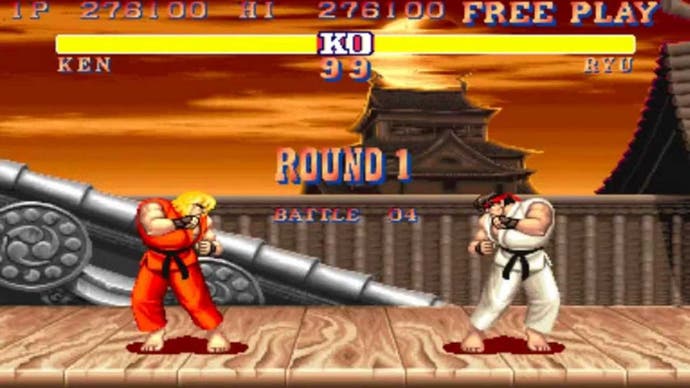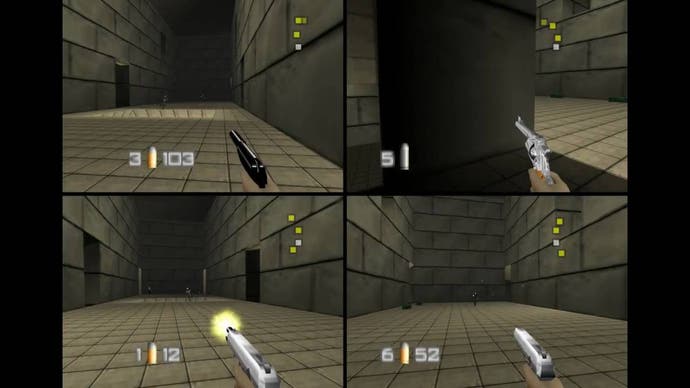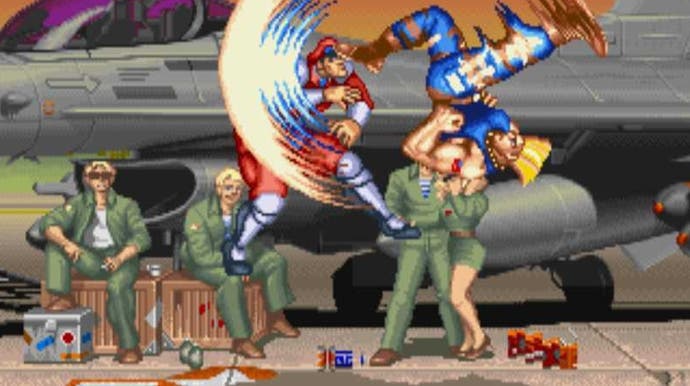The rules of a gaming friendship
"We decided that neither of us could perform a fireball ever again."
Childhood friendships are frequently born out of practicalities, I suspect. Things like being geographically nearby are important, but there's also the more mercenary aspect of childhood - having a friend who has all the 'cool' stuff that you don't. It may have blossomed into a solid adult friendship too, but I suspect convenience was a big part for how my childhood best friend and I came to be.
See, that friend lived about 300 metres from me, and it turned out we both had exactly all the cool stuff that the other person desired. He had all the books I could have wanted to read, and all the games and game consoles I didn't have. One of the first times I visited his home, I left carrying a pile of books that I couldn't wait to read. That's how similar our tastes were back then. From the age of 10 to adulthood, we continued this trend through gaming. There was rarely overlap. He had a Super Nintendo while I had a Sega Megadrive, I plumped for the Playstation 1, and he favoured the Nintendo 64. It was perfect. Except, we were both very competitive kids when it came to games. Both reasonably well-matched in terms of skill level, but both slightly sore losers too. So, we gradually learned to set up some ground rules so that our friendship didn't suffer.
This mostly stemmed from the early days of Street Fighter 2. We were a little bit too similar with how we played it. We were both very cheap. He preferred Ryu while I always went with Ken. Both of us really liked throwing fireballs at each other. You can see where this is going, right? Sounds of 'Hadoken!' emanated from the tiny 14" portable TV that we crowded around, polluting the air and making us a teensy bit more aggressive towards each other. We'd cancel each other out for far too long. Never really getting anywhere, but still irritating the other person due to refusing to back down. A sensible person would try one of many other moves to circumvent this issue but, well, we weren't as sensible as we probably should have been. It was relatively new ground in terms of learning how to play nicely.
To our credit, we were clearly decent kids as it wasn't long before we realised that maybe our relatively new friendship could be damaged by this cheap combat move. We decided that neither of us could perform a fireball move ever again. It was the safest decision to make, if somewhat extreme. I've no idea which of us set the rule but it probably hints at the fact that maybe that person is the better one of the two, so I'm going to go ahead and decide it was me. The power of being the writer of this anecdote. And so we carried on blissfully not falling out any time we decided to throw ourselves into a marathon Street Fighter 2 session.

We enjoyed a similar experience when he'd visit my house. Having tracked down a copy of Bubble Bobble for the Playstation 1, we realised that one of us was a little too keen to swipe up all the fruit at the end of the level. It didn't really matter in the grand scheme of things but it also really, really mattered. There were principles at stake here. So, we set a ground rule. Mentally, we drew a line down the middle of the screen and each player had to keep to their side when it came to picking up fruit and diamonds. Anything that was located directly in the middle was free for the taking. Invariably, I'd grab it in time. That was a rule that extended to Bubble Bobble sessions with my mum, because I'd get too competitive there too and you really don't want to fall out with your mum over a game.
In a way, I guess it was a form of conflict resolution. We were mostly fairly laid-back kids and I can't ever remember any other form of argument. In this case, we saw there was an issue that could have turned into a major problem and we fixed it.
I think the greatest test was the double whammy of Goldeneye and Perfect Dark. We loved both of them to an obsessive degree. Many summer days were spent in a darkened bedroom, playing split-screen multiplayer on that ridiculously tiny portable TV. I remember days where we'd finish up playing one of them and I swear I could still see crosshairs in my vision. Far from healthy, but then again, we both grew into perfectly respectable adults with no anger management issues. Maybe, that was down to the special rules we set.
As anyone who's played either game will tell you, the first person to grab a gun has a substantial advantage. As bizarre as it sounds by modern standards - although maybe it makes more sense to PUBG and Fortnite players - you're not even given a basic pistol at the start. Instead, you have to seek a weapon out as quickly as possible to stand half a chance. Often, that meant a very one-sided battle. We both knew the layouts of the levels a little too well, and fights could be over very soon, simply because the other person didn't have a gun and thereby didn't really stand a chance. So, we set a pivotal ground rule. No one could shoot anyone until both of us had a weapon in our hands. It's a really rather gentlemanly and duel-like way of doing things, and it worked perfectly.

No longer did we get ratty at each other because the other person was 'cheap' and managed to spawn right next to a weapon. Sure, it was unfortunate if one of us had an utterly useless Klobb and the other had an Assault Rifle, but it was a fair enough rule without being overly complicated. Years later, we'd meet up and dig out the old console and cartridge, and immediately revert to those rules. It didn't need to be said. It was just instinctive.
These days, we rarely play games together but I've no doubt that if we did, and we met an impasse, we'd sort things out just as calmly as those kids did before them. It was good groundwork in how to teach two competitive people to figure things out, without allowing too much leeway.
It'd be wonderfully appropriate if I could now say that one of us worked in conflict management or was a hostage negotiator. Instead, I'm writing this and he's a teacher. Actually, that's probably exactly like being a hostage negotiator but with fewer explosions. Okay then, I'm taking all the credit for his successful career, and he can have the credit for inspiring this piece.

